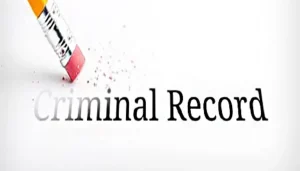Expungements Update
Since I last wrote about expungements in 2015, the legislature has made getting an expungement easier and made many more people eligible. Expungements are important because everyone makes mistakes, but it doesn’t mean that your mistake should follow you around the rest of your life and affect your job prospects, dating, personal relationships, and more. This post will discuss the different types of expungements and your potential eligibility. As always, every person and case is different, so make sure you visit with a licensed attorney about your specific case as this is a general overview.
TYPES OF EXPUNGEMENTS
There are two main types of expungements of a criminal case: a “public record” expungement and an “arrest record” expungement.
Public record expungements are usually the result of the completion of a deferred sentence and are talked about in 22 O.S. 991(c)(D). If you successfully complete your deferred sentence, the Court will dismiss your case and your public record will be expunged. In most counties I practice in, this process is done automatically by the District Attorney’s office, however, there are some counties in Oklahoma where the Defendant has to file his or her own 991(c)(D) motion. True to its name, a public record expungement through 991(c)(D) only gets rid of the public record of an offense, meaning OSCN should not have a record of the case, the clerk seals the file and it is not open for public inspection and OSBI should show that the case was dismissed. Since there are a lot of moving pieces in this process, it is not uncommon for a step to be missed, so if you successfully completed a deferred sentence and it is still showing up on OSCN, or your OSBI background check does not show the case dismissed, there is a relatively easy and inexpensive fix.
Most of the issues I get calls about deal with a person’s arrest record. Even if you successfully complete a deferred sentence and your case is dismissed, or you are arrested and charges are never filed, the arrest will likely still appear on your record. It may say “case dismissed” or it may say “referred to DA” or one of a few other notations. The problem is that most employers get antsy if you have an arrest on your record, especially for a felony, even if it says case dismissed. The good news is that it may be possible to get your arrest record expunged. The bad news is that there are several limits.
Arrest record expungements are codified in 22 O.S. 18.
Misdemeanor Expungements
For misdemeanors, there are three types of cases that can be expunged:
1) If you were convicted of a misdemeanor offense, and fined $500 or less, have not been convicted of a felony, and no felony or misdemeanor charges are pending, you are immediately eligible for expungement.
2) If you were convicted of a misdemeanor, fined more than $500 or placed on a suspended sentence have not been convicted of a felony, and no felony or misdemeanor charges are pending, you are eligible for expungement five (5) years after the completion of your sentence or probation.
3) If you were placed on a deferred sentence, have no prior felony or misdemeanor convictions and have no misdemeanor or felony charges pending, you are eligible one (1) year from the completion of your probation. You can find more details about misdemeanor expungements on this page.
Felony Expungements
Expunging a felony arrest is more complicated. Again the specific rules are found in 22 O.S. 18.
1) If you were convicted of a NON-VIOLENT felony offense NOT listed in 57 O.S. 571, you have not been convicted of any other felony, you have not been convicted of a seperate misdemeanor in the last seven (7) years, and no felony or misdemeanor charges are pending, you are eligible for an expungement five (5) years after the completion of the sentence or probation.
2) If you were convicted of not more than two (2) felony offenses, none of which were crimes listed in 21 O.S. 13.1, or any offenses that would require registration pursuant to the Sex Offenders Registration Act, and no felony or misdemeanor charges are pending, you are eligible for an expungement ten (10) years after the completion of the sentence or probation.
3) If you were placed on a deferred sentence for not more than two felony offenses, none are charges under 21 O.S. 13.1, are not required to register pursuant to the Sex Offenders Registration Act, and no felony or midemeanor charges are pending, you are eligible for an expungement ten (10) years after the completion of the deferred sentence and the case was dismissed.
Other Expungements
Several types of crimes used to be classified as felonies, but are now considered misdmeanors under Oklahoma law (such as simple possession of CDS). If you were convicted of such a crime, you are eligible for an expungement as long as thirty (30) days has passed since the completion of the sentence, all restitution has been paid, all treatment (if any) ordered by the court has been satisfied, and you are not currently serving a sentence for another crime.
Knowing if, and when, you are eligible for an expungement is one of the many reasons why hiring an experienced criminal defense lawyer is important. Don’t hesitate to contact me for a FREE consultation at 580.249.9100 any time.
DISCLAIMER: The law on these issues changes often, so this may not be current law. Contact a lawyer immediately to discuss these issues and whether they apply to your case today.

